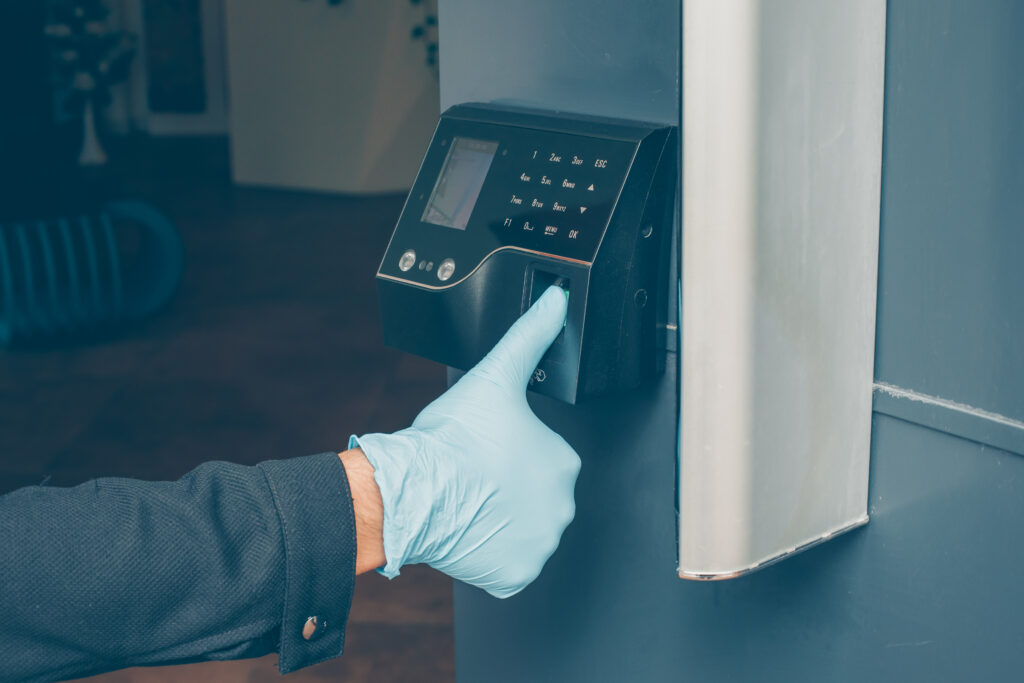How Access Control Service Houston Keep You Safe
In an era where security concerns are paramount, access control services have emerged as a vital component in protecting people, property, and sensitive information. Whether it’s securing physical premises, digital assets, or confidential data, access control systems provide a robust framework for controlling and monitoring who has access to specific resources. Here’s how an access control service Houston keeps you safe

Limiting Unauthorized Entry
Access control services prevent unauthorized individuals from entering restricted areas or sensitive zones. By employing mechanisms such as keycards, biometric scanners, or PIN codes, these systems ensure that only authorized personnel can access designated locations. This restriction mitigates the risk of intrusions, theft, vandalism, or other security breaches, bolstering the overall safety and integrity of the premises.
Enhanced Security Layers
Access control services offer multiple layers of security to safeguard against potential threats. From basic door locks and keypads to advanced biometric readers and facial recognition technology, these systems provide varying levels of authentication based on the sensitivity of the area being protected. By implementing multiple layers of authentication, access control services create a formidable barrier that deters unauthorized access and fortifies your security posture.
Audit Trails And Activity Monitoring
Access control systems maintain detailed audit trails and activity logs, documenting every access attempt and entry event. This comprehensive recordkeeping enables administrators to track the movement of individuals throughout the facility, identify anomalies or suspicious behavior, and investigate security incidents retroactively. By maintaining an accurate record of access activities, access control services facilitate accountability, transparency, and forensic analysis in the event of security breaches or compliance audits.
Flexible Access Permissions
Access control services allow administrators to define and manage access permissions dynamically. Whether it’s granting temporary access for contractors, restricting entry during off-hours, or revoking privileges for terminated employees, these systems offer granular control over who can access specific areas and resources at any given time. This flexibility ensures that access privileges align with organizational policies, operational requirements, and security protocols, minimizing the risk of unauthorized access and insider threats.
Integration With Security Systems
Access control services seamlessly integrate with other security systems, such as video surveillance, intrusion detection, and alarm monitoring. This integration enables centralized management and correlation of security events, allowing administrators to respond swiftly to potential threats or breaches. By consolidating multiple security functions under a unified platform, access control services provide a holistic approach to security management, enhancing situational awareness and response capabilities.
Remote Management And Monitoring
Modern access control systems offer remote management and monitoring capabilities, allowing administrators to oversee security operations from anywhere at any time. Whether it’s granting access privileges, configuring security settings, or reviewing access logs, administrators can perform these tasks remotely via a web-based interface or mobile application. This remote accessibility adds convenience, flexibility, and responsiveness to security management, empowering organizations to maintain a proactive stance against emerging threats and security challenges.
Compliance And Regulatory Requirements
Access control services help organizations meet regulatory compliance requirements and industry standards related to security and data protection. Whether it’s HIPAA in healthcare, PCI DSS in finance, or GDPR in data privacy, access control systems play a crucial role in enforcing access controls, safeguarding sensitive information, and demonstrating compliance with regulatory mandates. By implementing robust access control measures, organizations mitigate the risk of data breaches, fines, and reputational damage associated with non-compliance.
Tailored User Authentication
Access control services offer the flexibility to implement tailored user authentication methods based on individual roles and responsibilities. For example, administrative staff may require multifactor authentication for heightened security, while visitors may only need temporary access passes. By customizing authentication requirements, organizations can strike a balance between security and convenience, ensuring that access controls align with the specific needs and risk profiles of different user groups.
Emergency Lockdown Capabilities
In emergencies such as active threats or natural disasters, access control systems can initiate lockdown procedures to secure the premises and protect occupants. With the push of a button or the activation of predefined triggers, doors can be automatically locked, access privileges can be temporarily suspended, and emergency alerts can be disseminated to relevant personnel. This rapid response capability helps minimize the risk of harm and enables coordinated evacuation or shelter-in-place protocols.
User-Friendly Interface | Access Control Service
Modern access control systems feature intuitive user interfaces that simplify management and operation for administrators and end-users alike. Through centralized dashboards, users can easily view access permissions, manage credentials, and generate reports with minimal training or technical expertise required. User-friendly interfaces enhance usability, reduce the risk of human error, and empower personnel to take proactive measures to enhance security without extensive training or support.
Conclusion
In conclusion, an access control service Houston plays a pivotal role in keeping individuals, assets, and information safe by limiting unauthorized entry, providing enhanced security layers, maintaining audit trails, offering flexible access permissions, integrating with security systems, enabling remote management, and ensuring compliance with regulatory requirements. By leveraging the capabilities of access control systems, organizations can establish a secure and resilient environment that protects against evolving threats and preserves the integrity of their operations.
